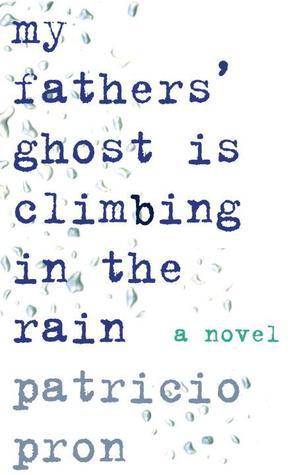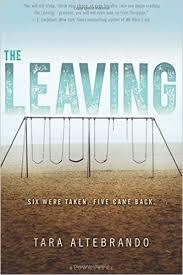 Phoenix Sullivan is well-known in the indie community – I’ve known her myself since 2009 or 2010 and consider her a close friend.
Phoenix Sullivan is well-known in the indie community – I’ve known her myself since 2009 or 2010 and consider her a close friend.
Aside from being exceptionally generous with her time and knowledge, tirelessly sharing her insights on marketing and algorithms, Phoenix is also well known as a vocal campaigner against scammers and cheaters – particularly on the current big issues of book stuffing and clickfarming.
And now she is being targeted.
Phoenix made a box set free for a few days at the very start of October, advertising on Freebooksy, KND/BookGorilla, and Digital Book Today – all legitimate sites – and there was no other promotion involved with this title. No BookBub CPM ads, no Facebook campaign, no tweets, no newsletter swaps, no mailing lists.
On the third day of her free run, Phoenix’s box set was rank-stripped by Amazon, a punishment normally reserved for those who have used clickfarms or bots. Phoenix reached out to Amazon to ask what was going on, but they only replied with a canned response accusing her of using artificial means to manipulate her rank.
Exactly one week later, they sent an automated mail with essentially the same content and implied threat:
We are reaching out to you because we detected purchases or borrows of your book(s) originating from accounts attempting to manipulate sales rank. As a result, the sales rank on the following book(s) will not be visible until we determine this activity has ceased.
Wild Hearts Box Set (Books 1 & 2 + Bonus Novella)(ASIN: B01MYP56J8)
Please be aware that you are responsible for ensuring the strategies used to promote your book(s) comply with our Terms and Conditions. We encourage you to thoroughly review any marketing services employed for promotional purposes.
Please be aware, any additional activity attempting to manipulate the Kindle services may result in account level action.
As I said, Phoenix is a close friend. I know her well and we are in contact almost every day. I know exactly what methods she uses to promote her books, and they are all legitimate. Her ethics are above reproach and she would never engage in any grey hat behavior, let alone go near the black hat territory of bots and clickfarms or mass gifting/incentivized purchasing.
In short, there is no possible way that Phoenix is guilty of any wrongdoing.
All of this happened a couple of weeks ago and Phoenix did not want to go public at first, instead preferring to give Amazon an opportunity to fix it. Successive emails from her to KDP, the Compliance Team, and Executive Customer Relations achieved nothing other than repeated boilerplate about rank manipulation – accusing her of employing illicit methods to artificially inflate her downloads.
At least that’s what we think Amazon is accusing her of doing. In keeping with the general Kafkaesque vibe of the whole situation, Phoenix is being warned not to do it again, but in the half-dozen emails Phoenix has received on this issue, Amazon hasn’t explained what “it” means exactly, and has refused point blank to elaborate (my emphasis):
As we previously stated, we still detect purchases or borrows of your book(s) are originating from accounts attempting to manipulate sales rank. You are responsible for ensuring the strategies used to promote your books comply with our Terms and Conditions.
We cannot offer advice on marketing services or details of our investigations.
Please be aware we will not be providing additional details.
This all unfolded while I was at NINC. I approached a senior Amazon person and explained the situation. He seemed genuinely concerned and said that he would investigate.
All that seemed to achieve was that the rank was eventually returned to Phoenix’s book fifteen days later, but her promo was ruined at that point and, most importantly, she is still being accused of rank manipulation and is on a warning as to her future conduct.
Here is the most disturbing part: it’s possible that Phoenix was deliberately targeted. She has been particularly vocal against scammers and cheaters, and some of the also boughts which attached themselves to her title after she was rank-stripped were highly suspicious. I offered this information to Amazon but they did not seem interested in pursuing that line of inquiry.
In the last two weeks, while Phoenix was waiting for Amazon to conclude their investigations, I have been contacted by a whole group of authors in a similar situation – including Cheri Lasota, Kristi Belcamino, Leigh LaValle, Alison Foster, Nikky Kaye, and an Australian romance author who wishes to remain nameless.
All of these authors had a similar experience to Phoenix – and had books rank-stripped in the same two-week period at the end of September. They shared with me which promo sites they used – and, I must stress, all were legitimate sites. I didn’t see anything at all which would cause concern.
Several more authors on KBoards have made similar reports.
Going through all of the details, I searched for commonalities. Some of the books were in KU, some were not. A few of them advertised on BookBub and similar (legitimate) discount sites, and others were backed by a Facebook campaign or newsletter swaps. The only common thread was that all the books were free and had some kind of promo.
I’ve seen some speculation on this point so let me be absolutely clear: there is zero indication that any of the discount sites are the problem here. The only apparent commonality is that all these books were visible in the charts. And Amazon is refusing to engage on the matter outside vague canned responses accusing them of rank manipulation – the exact same messages that I quoted above.
And all these titles were still rank-stripped as of this morning.
The consequences of rank-stripping are severe. When Amazon strips rank from a book, it immediately disappears from the charts, it also disappears from the Popularity List, which feeds a lot of recommendations in the Amazon system. Your book becomes pretty much invisible to Amazon customers unless they directly navigate to your product page somehow. In other words, it chokes off your visibility and kills discoverability.
Needless to say, this pretty much wastes any promo you throw at a book, meaning authors can be seriously out of pocket as a result of this sanction. And, of course, all of these authors have a sword hanging over them now, having been warned as to future conduct (my emphasis):
Please be aware, any additional activity attempting to manipulate the Kindle services may result in account level action.
This is very shabby treatment from Amazon. Even when someone engages in the most egregious law-breaking, there is a trial where they see the evidence against them and they are permitted to mount a defense. In this case, Amazon has just asserted guilt without offering any evidence, has immediately instituted sanctions, threatened even more severe punishment in the future, and is not giving any of the victims a right of reply. This violates any basic principle of fairness and justice, and is no way to act when people’s livelihoods and reputations are at stake.
And it gets worse.
Yesterday, there was a new case – the first one involving a paid title. Veil Nights Box Set #1 by Rowan Casey is a shared world/shared pen-name between twelve high-profile authors, including New York Times bestellers and Amazon Publishing authors – which is all above board and legitimate, and they detail that arrangement in their bio on Amazon.
They ran the box set on BookBub on Wednesday, and deployed no other promo aside from mentioning it to their own mailing lists in the days leading up to the BookBub feature – when it sold approximately 1,500 copies and hit #97 in the Kindle Store.
Then the next day it was rank stripped.
So, this is getting pretty serious. It doesn’t matter if you are wide or in KU, it doesn’t matter if you are big name author or New York Times bestseller, it doesn’t even matter if you are published by Amazon’s imprints, you could be rank-stripped too, with no way to appeal.
But why is all this happening? I see two probable causes, not necessarily exclusive:
The first theory seems the most immediately plausible, but there is some evidence pointing to the second theory: the same suspicious also boughts appeared on several of the rank-stripped books, and the selection of books affected appears to indicate someone paging through the free charts and manually picking some of those visible, rather than the randomness of a malfunctioning fraud detection system.
Why would scammers do this? There are any number of possibilities, from a general muddying of the waters so Amazon can’t detect actual fraud, to specific testing of Amazon’s fraud detection systems to see what level of artificial downloads triggers a sanction.
Whatever the reason, Amazon has a serious problem on its hands and is refusing to admit it. Rubbing further salt in the wound is that the most egregious scammers and cheaters are still stealing from the KU pot and riding high in the charts.
Self-publishers are worried now about running any kind of promotion and whether they will make it through the Hall of Spinning Knives – honest authors who have only ever used legitimate means to promote their work. (And I’m sure it won’t escape anyone’s notice that two of the most high-profile campaigners against KU scammers have recently run into enforcement issues with Amazon.)
I can’t understand Amazon’s approach here. It has invested so much in building up goodwill among self-publishers and horrendous episodes like this – and its refusal to admit fault even in the most egregious cases – is destroying that. Meanwhile, all the actual scammers and cheaters are still flooding the charts, eroding precious reader trust in Amazon’s recommendations. It’s all so crazy, and all so avoidable.
None of it makes any damn sense.
This one could probably do with a hashtag. Maybe #UnavailableAtAmazon https://t.co/hRaAcW0Vns
— David Gaughran (@DavidGaughran) October 20, 2017
Share this:
- More





